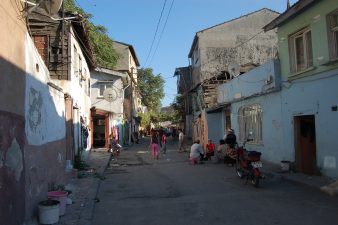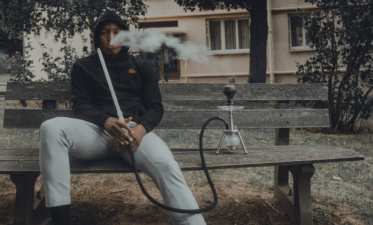Turkey is in the news for its social protests which may also be linked to this: a new Turkish law bans late night alcohol sales and requires boozy products to be smacked with warning labels.
Shops can’t openly display intoxicating wares or sell them between 10:00 pm to 6:00 am. No more free hats and T-shirts either: alcohol producers are prohibited from sponsoring public events.
Turkey’s Muslim majority is ruled by a secular constitution, and this law (which requires presidential approval) is viewed by secular Turks as another proof of the government’s Islamic agenda.
Prime Minister Recep Tayyip Erdoğan says that the party is not restricting freedoms but rather elevating Turkey (now jockeying for European Union membership) to international standards that emphasize health and protect youth.
Turkey has sought to discourage alcohol consumption by enforcing a minimum purchasing age of 18, and by applying steep sales tax. Some private businesses endorse the scheme; Turkish Airlines banned alcohol on some of its domestic flights.
The PM is also tackling tobacco, saying at a May 31 anti-tobacco conference (held at a Convention Center near Taksim Gezi Park as the protesters were starting to demonstrate) that restricting alcohol and banning smoking in public areas had “pleased the public.”
Speaking of his past accomplishments as Mayor of Istanbul, he told the conference goers, “We banned drinking, we banned smoking. These places began to fill up. It is our duty to protect the lawful acts of the minority as well. Our people want peaceful places,” Erdoğan said.
Did he run that credo by the nearby demonstrators in Taksim Square?
Erdoğan denied that this is an alcohol ban, “What’s essential to us is the benefit of our people. I will not back down from taking steps toward the preservation of my people’s future just because someone’s fun is being interrupted,” Erdoğan added, according to Hurriyet Daily News.
Did Turkish airlines ban lipstick for its flight attendants?
In a separate but related news, Turkish Airlines is backpedaling on its recent ban on red lipstick for its flight attendants.
“Lipstick-gate” erupted last week when the airline’s Media Relations department issued a memo forbidding flight crew from wearing red or dark pink lipstick and nail polish.
The memo declared that colorful cosmetics “impairs the visual integrity of the intended look,” concluding that, “Turkish Airlines has adopted a policy that requires service personnel to use personal grooming products that are in a more muted color palate.”
But the carrier’s boss, Dr. Temel Kotil, later said the memo (prepared by “low-level” managers) was not a rule, but rather, a guideline, adding that the experience was, “Taking us one step back but we’re going four steps forward”. See Reuters.
Human rights versus rights to buy midnight cocktails; freedom of speech versus freedom to smoke; environmental protections versus cosmetic liberation: it’s good that Turkey’s got their priorities straight.





all the bans etc… the USA already has these rules. are they not secular? have to be 21 to buy alcohol..cant smoke in public places..can only buy alcohol at certian times.. same EXACT thing. 🙂
Agree, Layla, that North America and the EU have legal limitations on alcohol and tobacco.
Preventing minors from buying alcohol and tobacco is wise, as is creation (and enforcement – which is absent in Jordan and Egypt, as example) of no-smoking public areas.
The slight difference in the proposed Turkish law – in the alcohol example – is that even adults will be prohibited from purchasing booze between arguably prime socializing hours. In a major metropolis like Istanbul and in the Antalya resorts, this will impact foreign tourists looking to drink on holiday, and translate into an economic hardship that will mainly affect non-Muslims.
It’s only when coupled with other Turkish cultural trends that these actions appear suspect.